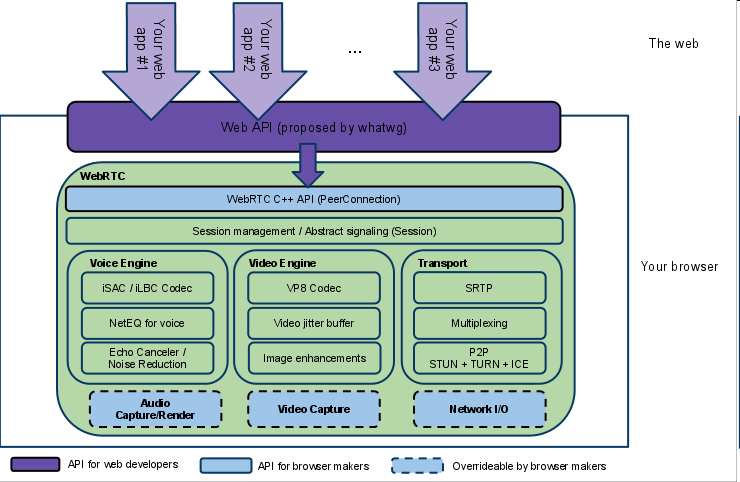| Chrome Now Has WebRTC |
| Written by Lucy Black |
| Thursday, 12 July 2012 |
|
The new beta of Google's Chrome browser has early support for WebRTC, an API that promises to deliver a better experience for web conferencing and online video chat services by letting the browser directly access a PC's camera and microphone. With the latest Beta release of Chrome Beta release, which includes the getUserMedia API, it’s now possible for you to grant web apps access to your camera and microphone right within the browser, without a plug-in.
This is the first step towards the new real-time communications standard WebRTC, which as explained when it was initiated by Google last year, is an open project that aims to allow real time communication between browsers including high-quality video and audio communication on the web via simple Javascript APIs.
The whole idea is to raise the browser one step further towards begin a complete operating system in its own right. Why should a browser have to connect to a server to make an audio or video connection with another browser. True peer-to-peer communications would make chat services such as Windows Live Messenger and Skype look less attractive. Currently the project has the support of Google, Mozilla and Oprea - as usual Microsoft is notable by its absence. The code that Google is supplying is issued as open source under the BSD license and so can be used for propriety projects. Should you start using RTC now? While there are some changes in progress most are minor API differences between Google's implementation and the W3C API specification. If you want to help or be an early adopter now seems like a good time. There are lots of demos on the WebRTC site.
More InformationRelated ArticlesGoogle WebRTC - browser based communications Can my browser speak to your browser?
Comments
or email your comment to: comments@i-programmer.info
To be informed about new articles on I Programmer, install the I Programmer Toolbar, subscribe to the RSS feed, follow us on, Twitter, Facebook, Google+ or Linkedin, or sign up for our weekly newsletter. |
| Last Updated ( Thursday, 12 July 2012 ) |


